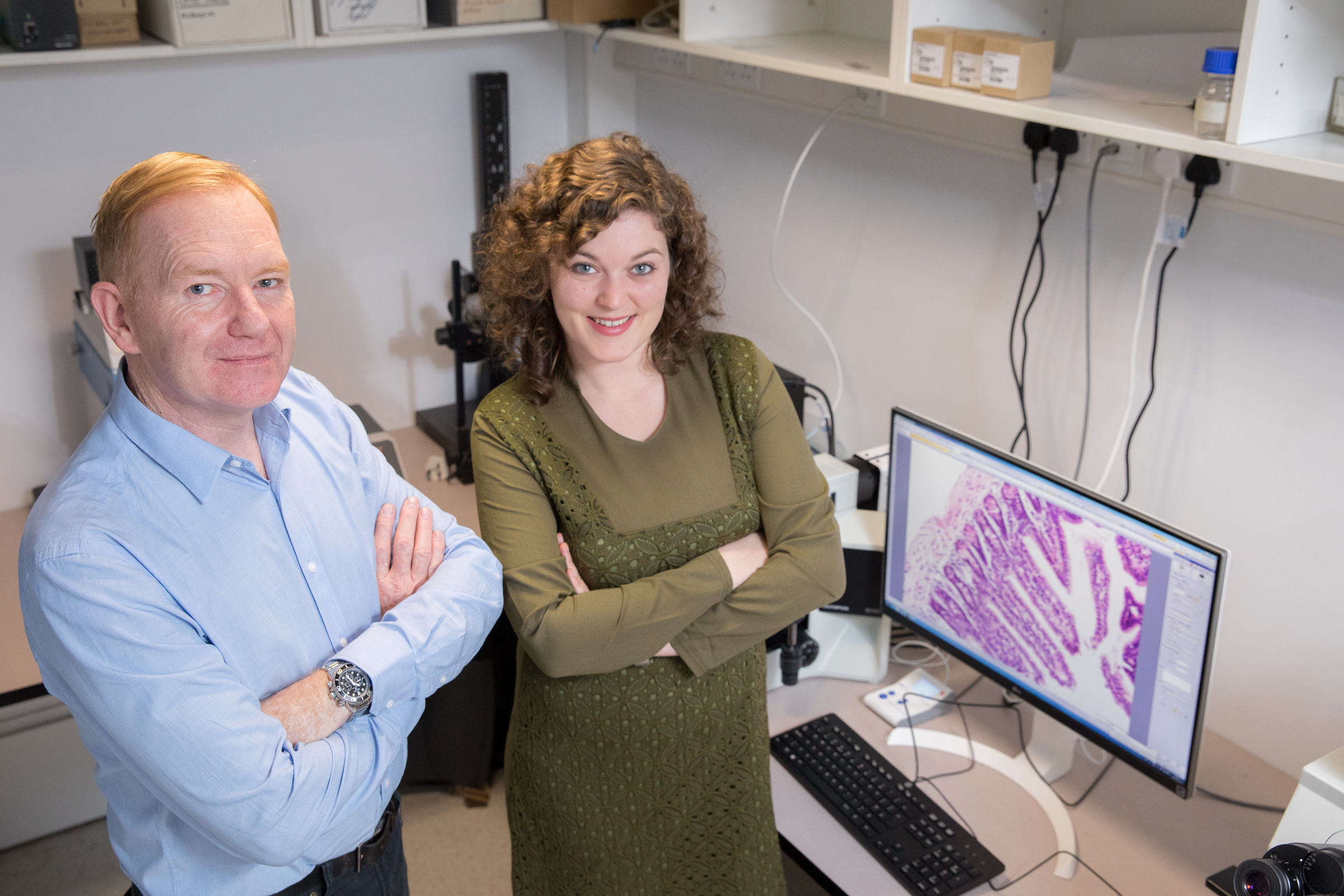High fat diet increases risk of food poisoning from Listeria monocytogenes

APC Microbiome Ireland scientists based at University College Cork have shown for the first time that a high fat “western” diet reduces the efficiency of the immune system to fight infectious disease particularly in the gut, and to infection with the foodborne pathogen, listeria monocytogenes.
The researchers found that feeding mice with a “westernised” diet, which is high in fat and low in fermentable fibre, affected both the immune system and the bacteria resident in the gut (the gut microbiota). Even short-term consumption of the high fat diet was found to increase the number of goblet cells in the gut, which are the target for infection by Listeria, as well as causing profound changes to the microbiota composition and immune system. The high fat diet also increased susceptibility to infections beyond the gut.
Increased human consumption of a ‘westernized’ diet has been linked to the dramatic rise in conditions such as obesity and type 2 diabetes, and research has demonstrated the direct effects of dietary fats upon both the immune system and the gut microbiota.
Listeria monocytogenes is a human pathogen found in contaminated foods that can cause serious disease, particularly in pregnant women, the elderly and immunocompromised people.
“Short-term consumption of the high fat diet increased levels of Firmicutes bacteria in the gut which are associated with obesity” said PhD student Vanessa Las Heras, who carried out the study at the flagship Science Foundation Ireland Research Centre. “The effects of diet were also seen beyond the gut, with reduced levels of immunity throughout the body, local alterations to gastrointestinal cell function and changes to the gut microbiota that enhanced the progression of Listeria infection”.
“Our results suggest that diet may be a significant influencer of resistance to infectious disease through effects on the gut microbiota and immune system. This has important implications for human health, especially during pregnancy, in old age and in immunocompromised individuals. It also has more general implications for research on infectious disease” said Dr Cormac Gahan, leader of the research study.
This research was funded through an EU Horizon 2020 Innovative Training Network grant and by Science Foundation Ireland through a Research Centre grant to APC Microbiome Ireland.
The study is published in the journal Microbiome:
Las Heras V, Clooney AG, Ryan FJ, Cabrera-Rubio R, Casey P, Hueston CM, Pinheiro J, Rudkin JK, Melgar S, Cotter PD, Hill C, and Gahan CGM. 2019. Short-term consumption of a high fat diet increases host susceptibility to Listeria monocytogenes infection. Microbiome20197:7 https://doi.org/10.1186/s40168-019-0621-x
About APC Microbiome Ireland
The SFI Research Centre APC Microbiome Ireland (APC; http://apc.ucc.ie ) is a world leading research institute which was formed in 2003 with funding from Science Foundation Ireland and in conjunction with key industry partners. It represents a seamless collaboration between University College Cork and Teagasc (the Irish Agriculture and Food Development Authority). It is widely recognised that the gut microbiota plays an important role in human health and has become one of the most dynamic, complex and exciting areas of research in both food and pharmaceutical arenas. Over the last decade the APC has established itself as one of the leading global centres in gut microbiota research. The APC has made several landmark discoveries and has published over 2,500 research articles in peer-reviewed journals, generating many journal covers and associated editorials. APC recently celebrated 15 years in operation, with the publication of a new report “Mining Microbes for Mankind - 15 years of Impact” ', produced in tandem with Cork University Business School, which outlines the impact of APC research on society and on the Irish economy. The Executive Summary of the report “Mining Microbes for Mankind – 15 years of impact” is available to download at http://apc.ucc.ie/apc-15-years-impact/
For more on this story contact:
For further information please contact Dr Cormac Gahan tel +353 21 3901363; email: c.gahan@ucc.ie or Dr Catherine Buckley, Communications Manager, APC Microbiome Ireland, UCC tel +353 21 4903362; email c.buckley@ucc.ie
